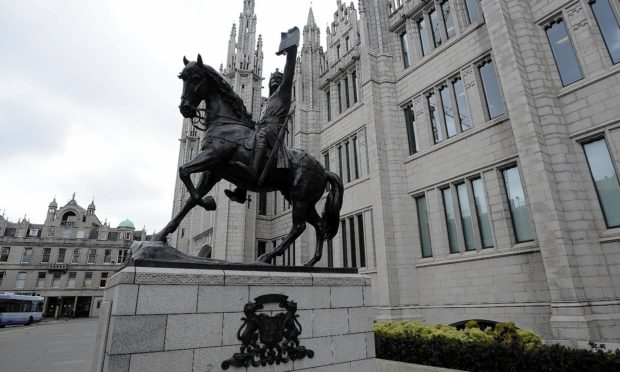Income from fees for council services in Aberdeen has almost trebled in four years as city residents are asked to plug the local authority’s funding gap.
New figures show the amount raised by the city council through charges has increased by 191%, from £14 million to almost £41 million in the period.
It was by far the highest rise in Scotland, comparing to a 1% average increase across the nation and more than double the next highest authority, Aberdeenshire Council, where income from fees has risen by 89% since 2012-13.
Only Glasgow and Edinburgh now take in more money from charges for services such as burials, parking and social care provision than Aberdeen, which is the country’s lowest funded council per head of population.
When total revenue and council tax income is combined, research by the Scottish Parliament Information Centre also confirms that Aberdeen receives the least, at £1,836 per person, followed by Edinburgh’s £1,853, Moray’s £2,000 and Aberdeenshire’s £2,011.
The Scottish average was £2,167, while the three island local authorities had the highest incomes per person, followed by Argyll and Bute.
All councils had experienced a drop in revenue per person since 2013-14, with Western Isles dropping by the most, at £504, followed by Shetland’s fall of £346 and Argyll and Bute decreasing by £288.
Orkney Islands Council had the lowest decrease per person in Scotland, at just £6.
In total, between 2013-14 and 2017-18, there was a 7.1% fall – £744.7 million – in the local government revenue settlement from the Scottish Government
Douglas Lumsden, co-leader of Aberdeen City Council, said: “With the challenges the region faces from business rates to the downturn, Aberdeen must start to receive a better deal from the SNP government.”
A spokesman for council umbrella body Cosla added: “There is no doubt that councils have suffered the brunt of cuts in recent years and the simple truth is that Scotland’s councils have no room left to manoeuvre in terms of budgets.”
A Scottish Government spokesman said: “These figures exclude a number of important, additional funding sources, including £355 million for health and social care and £150 million of funding that is provided outwith the core settlement, but which benefits local government.
“When those are included, there has been a slight decrease of just 0.8% between 2013 and 2019, compared to a 1.8% cut to the Scottish Government revenue budget over the same period.”
